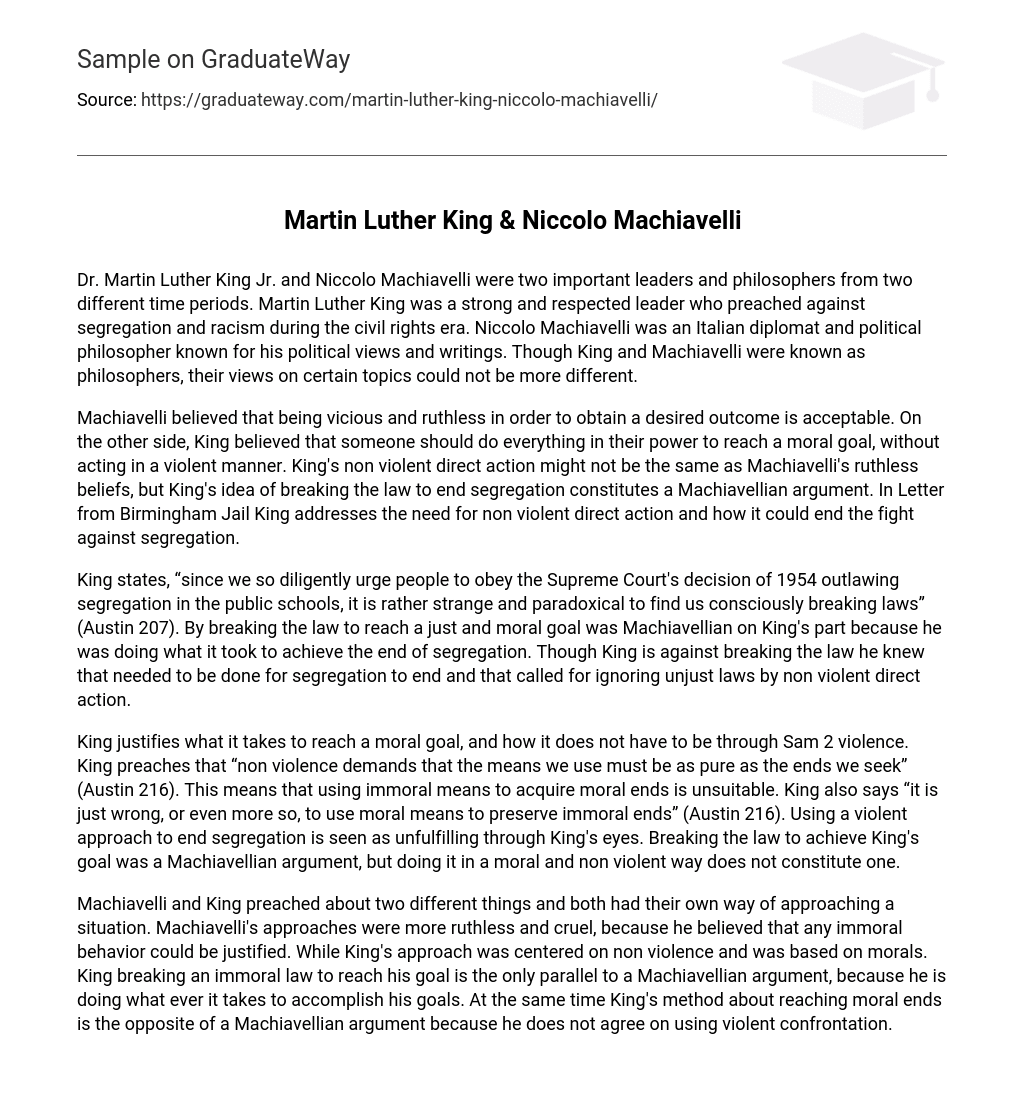Both Dr. Martin Luther King Jr. and Niccolo Machiavelli were prominent individuals during their respective historical eras. Dr. King was a revered leader who ardently campaigned against racism and segregation in the civil rights movement, whereas Machiavelli, an Italian diplomat and political philosopher, became renowned for his political doctrines and writings. Although both categorized as philosophers, King and Machiavelli held contrasting perspectives on numerous subjects.
Machiavelli and King held opposing viewpoints on the methods to accomplish their goals. Machiavelli supported cruelty and ruthlessness, while King advocated for pursuing moral objectives without violence. However, despite these differences, King’s approach of utilizing nonviolent direct action to challenge segregation can be considered consistent with Machiavelli’s argument. In his Letter from Birmingham Jail, King highlights the significance of nonviolent direct action in combating segregation.
Despite the irony of King’s simultaneous call for compliance with the Supreme Court’s ban on segregation in public schools and his own conscious defiance of laws, this contradictory act is considered Machiavellian due to his belief in employing any means necessary to achieve desegregation. Although he generally promoted lawfulness, King acknowledged that nonviolent direct action required disregarding unjust laws in order to eradicate segregation.
According to King, the accomplishment of a moral objective does not necessitate the use of violence. He stresses that the methods employed must be virtuous, just as the desired outcomes. King asserts that it is inappropriate to utilize immoral tactics in order to achieve moral goals. He finds resorting to violence in order to put an end to segregation unsatisfactory. While some may view breaking the law as a Machiavellian tactic towards achieving King’s aim, he affirms that employing moral and nonviolent means is incompatible with this approach.
Both Machiavelli and King had contrasting ideologies, each with their own unique methods for handling situations. Machiavelli’s tactics were marked by ruthlessness and cruelty, as he believed that any immoral actions could be justified. Conversely, King advocated for nonviolence and upheld moral principles in his approach. The only similarity between the two lies in King’s readiness to defy an immoral law to achieve his goals, which aligns with a Machiavellian viewpoint of doing whatever it takes to succeed. However, King’s pursuit of moral objectives greatly differs from the Machiavellian argument since he vehemently opposes resorting to violent confrontation.





